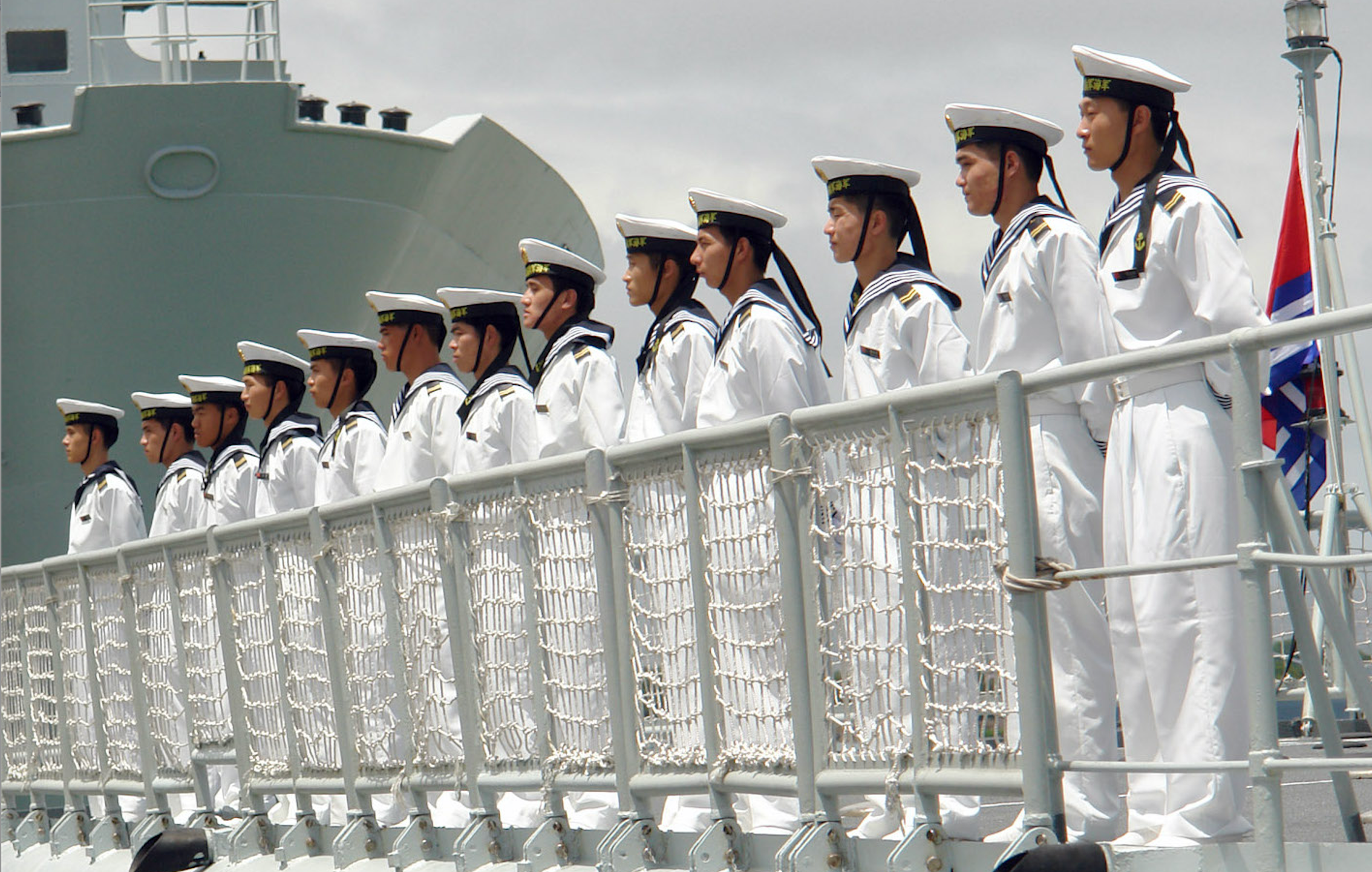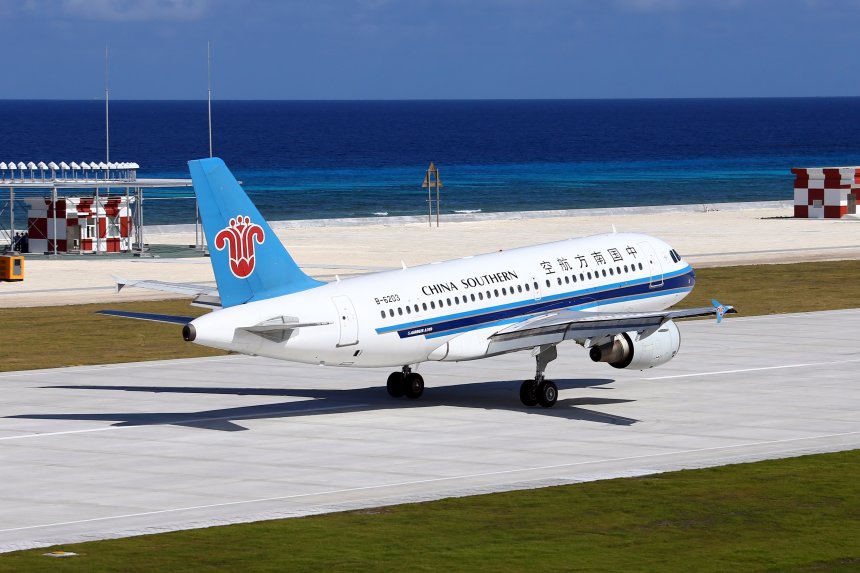
Chinese officials claim to be on “ high alert against Japan’s attempt to poke its nose in the issue of the South China Sea,” following an interview published Sunday in which Japanese Prime Minister Shinzo Abe called for the international community to “raise its voice” against Chinese encroachment.
On Sunday, in a wide-ranging interview with The Financial Times, Abe addressed the development of Chinese installations and its moves into the East China Sea.
“Japan, he says, ‘harbors very strong concern’ over China’s building of artificial islands in the South China Sea and its attempts to develop resources in the East China Sea close to Japan, [with Abe] calling for the international community to ‘raise its voice’,” wrote the paper.
After completing its program of artificial island creation earlier last year, China has made moves from those installations in the South China Sea that have made its regional neighbors anxious.

In the last few weeks, China’s airfield on Fiery Cross Reef, in the middle of the South China Sea has been declared operational and hosted commercial flights.
In the East China Sea, Chinese Coast Guard cutters – converted People’s Liberation Army Navy frigates – entered waters near the Japanese administered Senkaku Islands last month sparking the ire of Tokyo and a pledge to interdict future violations with Japanese Maritime Self Defense patrols.
China and Japan also have a long standing dispute over mineral rights in the East China Sea.
In response to Abe’s interview, Chinese Ministry of Foreign Affairs spokesman Hong Lei told reporters Beijing was within its rights to build on the territory on the Spratly Islands [Nansha] and again called out Japan for its record in World War II.
“Construction by China on relevant islands and reefs of the Nansha Islands falls within China’s sovereignty. It is legitimate, reasonable and justified. Japan once snatched from China islands in the South China Sea during the Second World War. The Chinese government retrieved them after the War. Japan should reflect upon rather than forget what it has done during the aggression, act and speak cautiously on issues concerning the East China Sea and the South China Sea, and make more efforts to increase mutual trust with its neighbors and promote regional peace and stability instead of sowing discord.”
Last year, Japanese officials said they reserved the option to patrol in the South China Sea – an idea U.S. regional commanders have supported – but had no immediate plans to do so.
The following is an excerpt from the Chinese Ministry of Foreign Affairs Jan. 19, 2016 press conference.
Q: In his recent interview with the Financial Times, Japanese Prime Minister Shinzo Abe said that Japan harbors very strong concerns over China’s building of islands in the South China Sea and development of resources in the East China Sea. He called on the international community to raise its voice against this. What is China’s response to that?
A: China’s oil and gas development activities in the East China Sea are all conducted in undisputed waters under the jurisdiction of China. They are within the realm of China’s sovereign right.
China has indisputable sovereignty over the Nansha Islands and their adjacent waters. Construction by China on relevant islands and reefs of the Nansha Islands falls within China’s sovereignty. It is legitimate, reasonable and justified. Japan once snatched from China islands in the South China Sea during the Second World War. The Chinese government retrieved them after the War. Japan should reflect upon rather than forget what it has done during the aggression, act and speak cautiously on issues concerning the East China Sea and the South China Sea, and make more efforts to increase mutual trust with its neighbors and promote regional peace and stability instead of sowing discord. China is on high alert against Japan’s attempt to poke its nose in the issue of the South China Sea.





